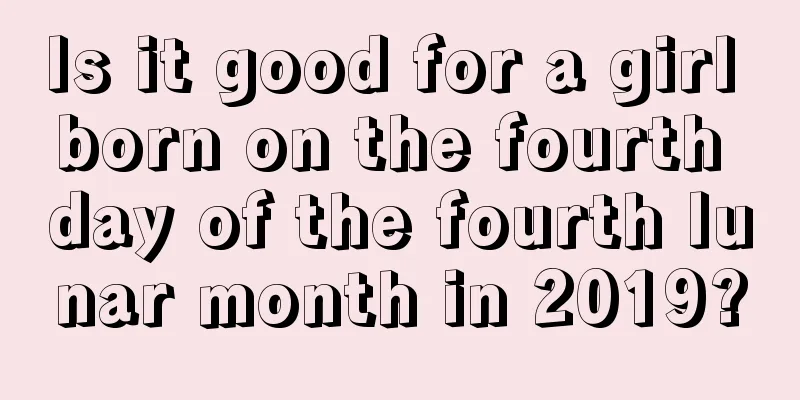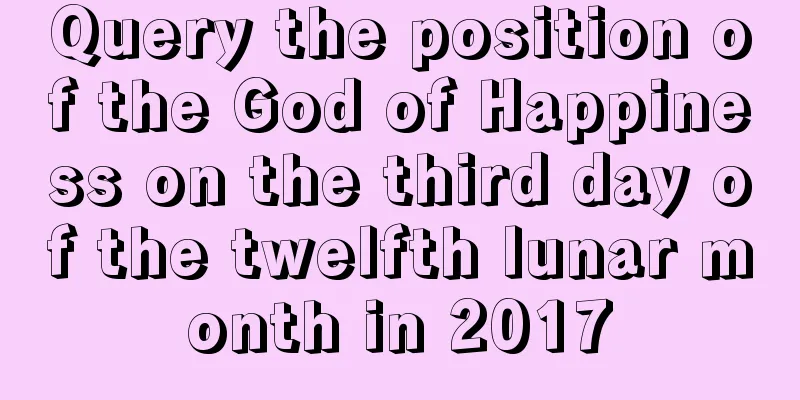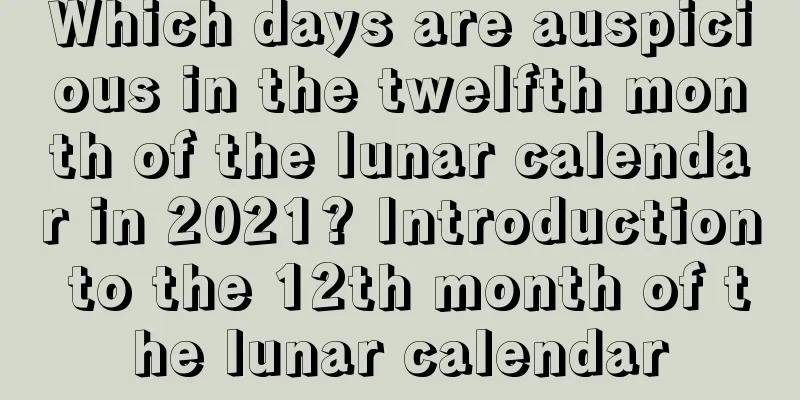Can we burn incense and worship our ancestors during the Lantern Festival? What are the four major festivals for ancestor worship?

Ancestor worship is a way for people to show their filial piety. In China, grand ancestor worship is held on some traditional festivals. So, can we burn incense and worship our ancestors during the Lantern Festival? What are the four major festivals for ancestor worship? If you want to know more about the first month of the lunar calendar in 2019, please pay attention to our Shui Mo Xiansheng website!Can we burn incense and worship our ancestors during the Lantern Festival?OK.According to legend, as early as the period of Emperor Wen of Han, the fifteenth day of the first lunar month was designated as the Lantern Festival. When Emperor Wu of Han created the "Taichu Calendar", the importance of the Lantern Festival was further confirmed. The period of the Lantern Festival has been continuously extended with the development of each dynasty. According to legend, the Lantern Festival in the Tang Dynasty only lasted three days, but it was extended to five days in the Song Dynasty, and later in the Ming Dynasty, it was increased to ten days, starting from the eighth day of the first lunar month and ending on the seventeenth day of the first lunar month. During the Northern Wei Dynasty, Taoism believed in the "Three Yuan Gods", including the "Shangyuan Tianguan (Tianguan Dadi)", "Zhongyuan Diguan (Diguan Dadi)" and "Xiayuan Shuiguan (Shuiguan Dadi)". Their birthdays are the 15th day of the first lunar month, the 15th day of the seventh lunar month and the 15th day of the tenth lunar month respectively, so the 15th day of the first lunar month is also called the "Shangyuan Festival". Some people also believe that it evolved from a sacrificial ceremony in the Han Dynasty court. On the Lantern Festival, which falls on the fifteenth day of the first lunar month, people according to custom offer sacrifices, burn incense, kowtow, and pray for blessings at home or in ancestral temples. Therefore, the Lantern Festival is an important festival for worshiping ghosts. Eating Yuanxiao during the Lantern Festival may have started in the Song Dynasty, but it was called "Floating Yuanzi" at the time. It was not until the Ming Dynasty that it was renamed "Yuanxiao". Every family makes and cooks Yuanxiao. In ancient times, eating glutinous rice balls was a good omen for the beginning of the year, and it symbolized family happiness. After the Yuanxiao are cooked, they are first offered to the ancestors and then the whole family gathers together to eat the Yuanxiao, which represents a happy reunion. Four major festivals for ancestor worship:Ancestor worship on New Year's Eve <br /> Ancestor worship on New Year's Eve is one of the traditional customs in China that has been passed down to this day. On the one hand, it stems from the traditional concepts of "filial piety is the first of all virtues" and "respecting the dead and remembering the ancestors", which means expressing filial piety and nostalgia for ancestors when bidding farewell to the old and welcoming the new; on the other hand, it is because people firmly believe that the ancestral spirits can bless their descendants and make them prosperous. This traditional custom has been passed down from generation to generation. People always hold a sacrificial ceremony on New Year's Eve to express gratitude and pray for blessings. In the past, the ancestor worship ceremony was usually held in the clan’s ancestral hall on the afternoon of New Year’s Eve. Members of the same clan dressed in their best clothes attended the ceremony, which was quite grand. Nowadays, people usually put out fine wine and delicious food in front of the ancestral shrine at home and offer sacrifices before eating the reunion dinner.Tomb-sweeping Day: Ancestor Worship <br /> The reason for tomb-sweeping during Tomb-sweeping Day is that as winter turns to spring and grass and trees sprout, people visit their ancestors' graves to personally check if the graves have collapsed due to the rainy season or if they have been pierced by foxes or rabbits. During the tomb-sweeping ceremony, people remove weeds from the graves, add new soil, offer a roasted pig as a sacrifice, burn incense and drink wine, burn paper money and hold simple sacrificial ceremonies to express their remembrance of their ancestors. Ancestor worship on the Double Ninth Festival <br /> The Double Ninth Festival is the ninth day of the ninth month of the lunar calendar, and the second ninth day is repeated, so it is called "Double Ninth". The Confucian view of Yin and Yang after the middle of the Han Dynasty has six Yins and nine Yangs. Nine is a yang number, so the ninth day of the ninth month is also called "Double Ninth Festival". People have the custom of climbing heights on this day, so the Double Ninth Festival is also called the "Climbing Heights Festival." There are also names such as Double Ninth Festival, Dogwood Festival, and Chrysanthemum Festival. Since the ninth day of September is pronounced as “九九” which sounds like “久久” (long lasting), people often worship their ancestors and carry out activities to respect the elderly on this day. Ancestor worship on the Zhongyuan Festival <br /> The ancestor worship festival is on the 15th day of the seventh lunar month, so it is simply called "Qiyueban" ancestor worship. By then, midsummer had passed and the cool autumn had just begun. People believe that their ancestors will return home to visit their descendants at this time, so they need to worship their ancestors. The worship ceremony is usually held in the evening before the end of July and is not limited to a specific day. On ordinary days, people worship their ancestors, but usually their tablets are not moved. When it comes to the "mid-July" ancestor worship, the tablets of the ancestors are taken out one by one and placed respectfully on a special offering table used for worship. Incense is then lit in front of each ancestor's tablet, and tea and food are offered three times a day, morning, noon and evening, until the tablets are returned on July 30. If you have portraits of your ancestors, please take them out and hang them up. When worshiping, people kowtow to each ancestor according to their seniority and age order, pray silently, report to the ancestors and ask them to examine their words and deeds in the past year and bless them with peace and happiness. When sending the deceased back, paper money and clothes are burned, which is called "burning baoyi", or it is a Buddhist or Taoist ritual for the salvation of the souls. In some areas of Jiangxi and Hunan, the Ghost Festival is a more important day for ancestor worship than Qingming Festival or Double Ninth Festival. |
<<: What should we do during the Lantern Festival?
Recommend
What is the zodiac sign of a baby born during the Lesser Heat period in 2017? Do you have a good personality?
Introduction: Constellations, like Chinese zodiac ...
Is the 15th day of the fifth lunar month in 2017 a suitable date for engagement? What are the do's and don'ts about engagement?
Introduction: Engagement is one of the traditional...
Is December 29, New Year’s Eve 2021 an auspicious day to move? Can I move into the house?
The twelfth month of the lunar calendar is coming ...
What is the next solar term after Beginning of Autumn? How long does it take for the weather to get cooler after the beginning of autumn?
After the beginning of autumn, the yang energy gra...
Can I get engaged or get a marriage certificate on the 15th day of the first lunar month, the Lantern Festival in 2019?
The fifteenth day of the first lunar month is the ...
What day of the week is Children's Day in 2019? Is June 1 a holiday on Children's Day?
June 1st of every year is one of the favorite holi...
Is August 19th of the lunar calendar in 2019 a suitable day for grave repair? Check today's auspiciousness and inauspiciousness!
Introduction: It is also necessary to choose an au...
Is it okay to go to the temple to burn incense and pray on the Chinese Valentine's Day in 2021? What is the Chinese Valentine's Day also called?
The Chinese Valentine's Day falls on the seven...
Is September 19th of the lunar calendar in 2019 suitable for opening a company or store?
Is September 19th of the lunar calendar in 2019 a...
What are the taboos about the Beginning of Winter in 2018?
With the arrival of the Beginning of Winter, our c...
Is the fifth day of the tenth lunar month in 2019 suitable for opening a new store or company?
Is the fifth day of the tenth lunar month in 2019 ...
Check the lunar calendar contents for August 17, 2019, Year of the Pig. Is it a good day?
Kindergartens, primary schools, middle schools an...
Is the sixth day of the tenth lunar month in 2017 a good date in the lunar calendar? Is it a good day to open the market?
Introduction: In our country, not only do you need...
What is the fate of people born in the twelfth month of the lunar calendar whose zodiac sign is Ox? Which month is best for people born in the Year of the Ox?
People born in the Year of the Ox are honest, pati...
Is the fourth day of the seventh lunar month in 2019 an auspicious day for traveling far away?
Is the fourth day of the seventh lunar month in 20...









